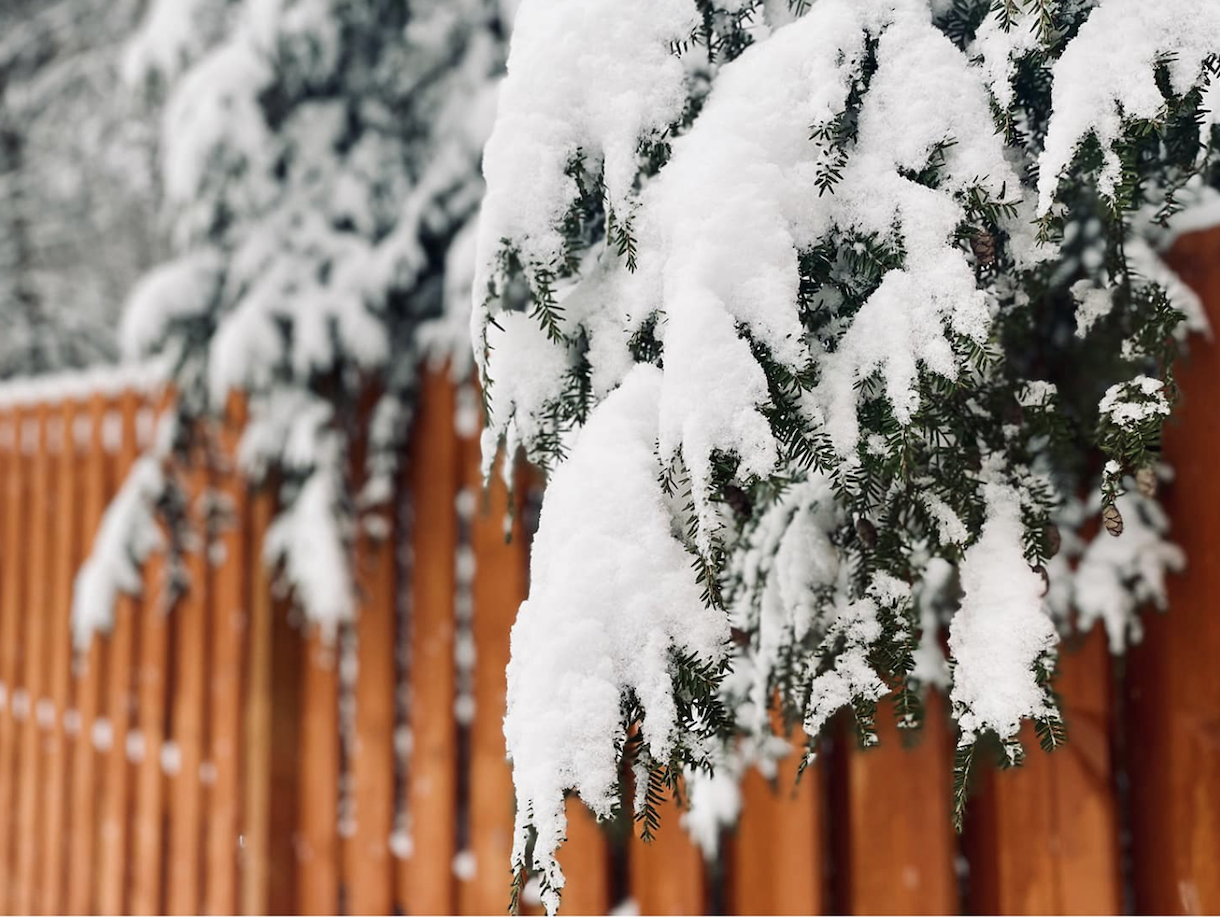Winter can be harsh on outdoor structures, including fences. Proper maintenance during the colder months is crucial to ensure the longevity and effectiveness of your fence. Weather in the winter months often brings snow and rain, and when these substances come into contact with fences, they can be absorbed by the materials, especially wood. Additionally, heavy snow accumulation can put a significant load on a fence, especially if it’s not designed to handle such weight. The added stress from the weight of snow can lead to structural damage or even cause the fence to collapse in extreme cases.
To ensure your fence is structurally sound and aesthetically pleasing, consider the following five winter fence maintenance tips:
Inspect for Damage:
Once a new fence is installed, you want to make sure you protect your investment. Regularly inspect your fence for any signs of damage, such as cracks, splinters, or loose boards. These issues are found most commonly with wood fences. Winter weather, with its cold temperatures and moisture, can worsen existing issues. Identifying and addressing problems early on can prevent further damage and repair costs.
Clear Debris and Snow:
Accumulated snow and debris can put extra weight and stress on your fence. Clear any snow, ice, or fallen branches to prevent additional strain on the structure. Use a soft broom or brush to avoid scratching or damaging the fence material. This is especially true for vinyl fencing.
Apply Protective Coatings:
If your fence is made of wood or another porous material, consider applying a protective sealant or stain before winter sets in. Fall is actually great time to stain your wood fence, as it tends to be cool and dry, allowing for any sealant or stain to set in effectively. This helps to create a barrier against moisture, preventing rot and decay. To ensure your fence’s warranty is not affected, make sure to follow the manufacturer’s guidelines and choose a product suitable for your fence material.
Trim Overhanging Branches:
It’s just as important to pay attention to your fence’s surround landscape as it is the fence itself! In addition to looking out for any pools of water or ice that accumulate around the base of the fence, you’ll want to pay attention to what’s above the fence. Trim any overhanging branches that could potentially fall onto your fence due to heavy snow or ice accumulation. Falling branches can cause significant damage to your fence, so proactive trimming can prevent such issues. If you are looking for the strongest fencing materials on the market, consider aluminum or Fence & Deck Connection’s TruConnect vinyl fencing!
Adjust Gate Hinges and Latches:
Winter weather can cause the ground to freeze and shift, impacting the alignment of your gate. Check the hinges and latches for proper alignment and functionality. Lubricate moving parts with a suitable lubricant to prevent rust and ensure smooth operation.
Remember that regular maintenance is key to preserving the integrity of your fence. Taking these steps during the winter months can help protect your investment and ensure that your fence continues to keep your home and family safe and secure!

